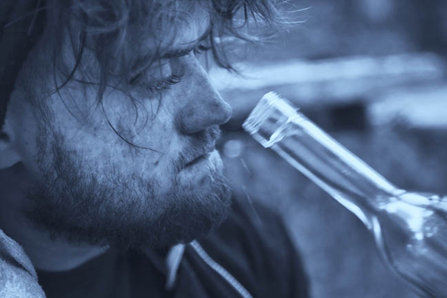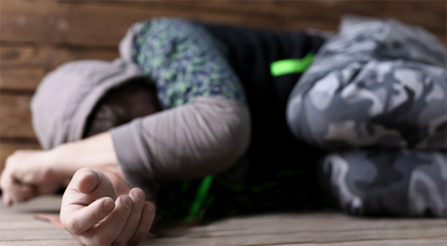You Offered Your Loved One Rehab But They Refused… Why?
To a reasonable person, it’s incomprehensible. You’re watching someone you love destroy every aspect of their lives—their relationships, their finances, careers, health and reputation. They have lost their homes, their families and every valuable possession they owned. So you find them a rehab you think will work for them and you say, “Please, take this offer, go to rehab, save your life.“

And he (or she) says no. Usually, a bitter argument follows. Or maybe they just rapidly walk out the door.
Along the way, your loved one probably managed to make you feel horrible, like everything that happened to him is your fault. You might hear accusations, refusals or denials like these:
- If you supported me more, I’d be doing better.
- Why don’t you ever trust me?
- That was a long time ago, why can’t you just let me be?
- You’re not so perfect yourself!
- I don’t need rehab, I can deal with this myself.
- I can quit whenever I want. I just don’t want to.
- I’ll cut back, it’ll be fine.
- If you hadn’t criticized me when I wanted to start that business (with no financing—in a field he had no experience with), I wouldn’t have needed a little something to make me feel better.
- Here we go again! Why can’t you leave me alone?
- If you make me go, you’ll never see me again.
There’s a thousand variations, none of which make any sense. How could they possibly respond this way when you are offering life-saving help?
This person has changed as a result of their drug use. His rationality and abilities have been damaged. Keep reading to learn the changes you are likely to witness that make your loved one violently reject the offer of rehab. Then in Part II of this article, we’ll tell you how this problem can be resolved.
Changed Personality
You’ve noticed this change in your loved one after he starting using drugs or drinking steadily. He no longer made positive decisions. He was no longer grateful, respectful, considerate, trustworthy. He’s no longer the loving husband you originally married. She’s no longer the attentive, caring mother she used to be. He’s no longer the son who would brighten every room he entered and whose greatest joy was making people laugh.
It’s almost like a physical change, like the physical toxicity of drugs or heavy alcohol use have poisoned him and changed his personality. There’s some truth to that. Aside from the toxicity, drugs create serious compulsions that drive a person away from the ability to simply be himself and make his own rational choices. His failure to maintain his own integrity will drive him even further down.
Lowered Awareness
Drugs lower awareness. That’s why opioids are used to dull physical pain during and after surgery. At one time, alcohol was also used to kill pain.

But when your awareness is lower, you lose your awareness not only of your body and environment but also of your own condition. You become unaware of your own physical, emotional and mental state. You manage to overlook the effects and consequences of your actions. You could be sick and not notice. You may be bankrupt and alone after losing your business and family—and alcohol, opioids, Xanax or potent weed will make it all go away. Once awareness hits these lower levels, it appears hard and painful to make the climb back up, if a person can even conceive of changing for the better at all. Sometimes they can’t.
Endless Justifications
If you’re trying to get a loved one to rehab, you’re likely to get a long list of justifications thrown at you. Justifications help the individual deal with the losses and pain he’s experienced because they shift the blame and make life a little more tolerable—even if it’s at the expense of truth.
You might hear statements like these:
- The boss had it in for me and never gave me good assignments.
- That teacher singled me out for ridicule before she flunked me.
- If that judge hadn’t sent me to jail, I’d be fine now.
- If dad hadn’t left home, I wouldn’t be in this condition.
- It’s because my ex-wife won’t let me see the kids.
- I couldn’t deal with grandma’s death and needed some relief.
Whatever they’ve done wrong or whatever loss they’ve suffered, it’s someone else’s fault, someone else’s causation.
If you look at it from the viewpoint of a person trying to survive unbearable pain, their justifications make a little more sense. That doesn’t mean you have to listen to them or give them any value. It’s just a way to understand their actions.
Guilt
Every addicted person suffers from enormous guilt. At some deep level, they know how much they have harmed themselves and their loved ones. They know how much money has gone into drugs and how much they have damaged their bodies and minds. They may have sold drugs to someone who died or maybe they watched a friend die of an overdose. They’ve stolen from loved ones and maybe they lost the house their family lived in. They may have been abusive to parents, a spouse and children.
There’s going to be tell-tale actions resulting from the guilt and those actions are going to add up to self-destruction. The person will withdraw from the family to avoid harming them anymore. They may be homeless because they don’t deserve any better. They certainly don’t deserve the help or love of their families!
In fact, every time they try to get sober, that huge burden of guilt is just waiting to crash down on their heads. Sure, it’s hard to face withdrawal sickness but right on the other side of that sickness sit those waves of guilt. As soon as they start to experience sobriety, they no longer have drugs or alcohol to deaden that sensation. This intolerable guilt can drive a person back to drugs.
Fear of Withdrawal

When a person has gone through unsupported opioid withdrawal—cold turkey withdrawal—they live in terror of ever experiencing this again. It’s common for people to be so sick and in such agonizing pain that they feel like they are dying or wish they would die.
With some drugs like methamphetamine or cocaine, the physical sickness is not so pronounced but the mental effects may be terrifying. They could be extremely anxious, restless and paranoid and the cravings can be overwhelming. Suicidal thoughts and attempts are also a possibility when withdrawing from stimulants. With some drugs, seizures or fever can occur and a medically-supervised detox period may be required to keep the person safe. The idea of going through withdrawal is definitely a deterrent to accepting help.
Incessant Cravings

Many people who get sober never find a solution to the cravings that plague them every hour of every day. When they do stay sober, they may need to rely on support groups or philosophies that enable them to choose sobriety for one single minute and then another minute, or an hour, or a day because the cravings never leave them alone.
If they have gone through a period of sobriety before they relapsed, they’ve already experienced these incessant cravings that never gave them a moment’s peace. If they go to rehab now, they may feel like their future life will contain nothing but cravings and struggle.
Fear of Never Feeling Pleasure Again
We already know that heavy drug and alcohol use dulls a person’s senses. They also dull that person’s ability to feel real, authentic pleasure. Even after a person gets sober, life may feel flat and dull. They may not have a grasp of how to enjoy life without drugs or alcohol and so the future looks desperately bleak. When you offer rehab, it’s just one more reason why getting sober almost feels like a death sentence.
With all this crushing weight on a person, it’s a little more understandable why they would reject the idea of rehab. When a person is hopeless, it’s hard to generate the hope of a recovery that would enable them to actually enjoy life again.
But the future is not hopeless, not for the addicted person and not for her (or his) family. In Part II of this article, we will explain how to break through these barriers so a person will say yes to getting help, and how the Narconon drug rehab program offers a bright new future to a person struggling with these overwhelming barriers.
Click on the following link for Part II of this series—What to Do When Your Loved One Refuses Life-Saving Rehab.


 ®
®